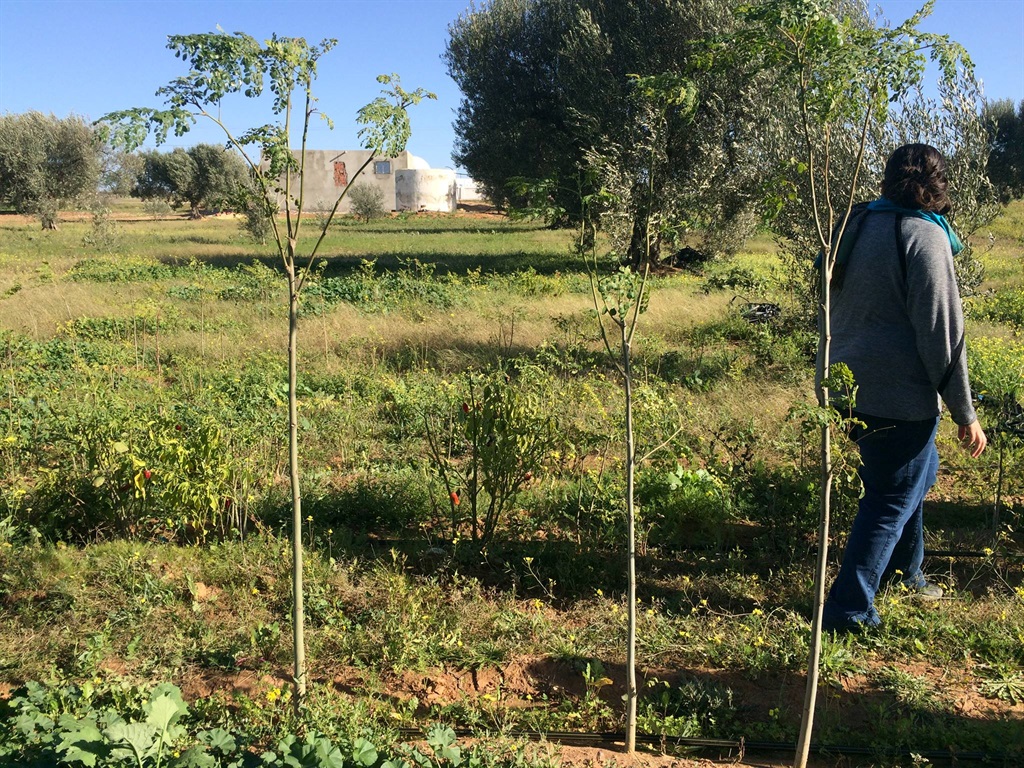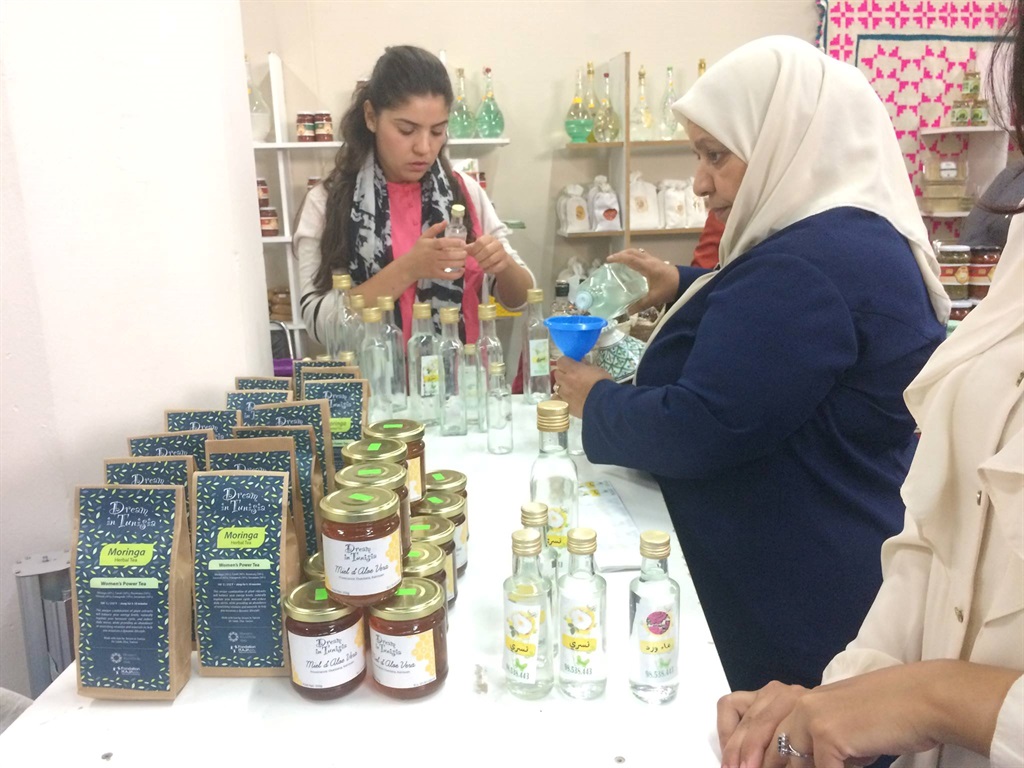
In the fight against water scarcity and desertification, the Acacias for All project is working to raise awareness among farmers of new and profitable ways of improving soil quality.
One such method is the cultivation of the moringa tree, an Asian acacia.
“Basically, the ground had deteriorated and there were no more shrubs. The soil had become impoverished due to conventional agricultural methods,” explains Hosn El Oujoud Tborski, head of communications at Acacias for All.
This magical plant is in the process of changing the Maghreb’s agricultural landscape. With an almost negligible thirst for water and leaves that can be reduced to powder and sold at a high price on the European market, this tree is helping the local community respond to issues of both water scarcity and poverty in the region.
This project was originally launched by Sarah Toumi, the granddaughter of a farmer, who believes that Tunisia has fallen into a vicious circle. While the country is being confronted with the effects of climate change and increasingly frequent droughts, the selection of Tunisian crops being cultivated has not changed and chosen crops continue to consume vast quantities of water.
When speaking with the farmers, Toumi found that there was a general sense of passivity towards these issues. For her the situation is serious, especially since desertification is slow eroding the crops.
It all began on her grandfather’s land, which sits in the agricultural Hencha region to the north of Sfax. As is often seen in Tunisia, water has been scarce in this area for several years. “In this arid climate, people do not adapt!” states Toumi.
So, to get the ball rolling, she started working in a 50-year-old olive grove planting natural acacia – or, more precisely, acacia moringa.
Little known by Tunisians, this tree came to the country from the Indian sub-continent and flourished thanks to its properties that are perfectly adapted to an arid environment. Its deep roots allow it to draw water from 60 metres underground, which also provide the secondary benefit of limiting irrigation and creating a natural barrier against erosion.
The canopy of the acacia moringa’s leaves protects the soil and even restores it through nitrogen fixing, which basically helps to revive soil that has become arid and lacking in nutrients.
In 2012 the pilot project against desertification was launched and Toumi established a demonstration centre for her tree nursery that could be used for “sustainable agricultural practices”. Fourteen regions took part in this reforestation campaign.
Tborski explains that the company relies on “ambassadors set up as cooperatives who carry out the work,” before adding: “our organisation then takes part in re-buying the produce, which comprises of things like herbal tea, honey, powdered leaves.”
To give the farmers’ traditional production methods a necessary shake up, Toumi started working in rural areas, often with women, around the village of Bir-Salah. For the most part, the women had their own small plots of land and very little access to scientific information or to potential markets.
Toumi found that these women were much more receptive to ideas of change and innovation, and when she proposed them her project, very few refused to take part. They quickly saw how the cultivation of the acacia could become an important source of income.
Acacias for All supplies the seeds, and when the tree is big enough, the female volunteers cut the branches, dry the leaves and reduce them to a powder. Rich in vitamins and minerals, this powder is transformed into food supplements, honeys and herbal teas that are then sold.
All of this work is completed by the women on their own land as part of the ‘cooperative’ framework. Each woman pays a small fee and is given the opportunity to learn about business techniques and how to market her produce for herself.
Since it first began, the project has successfully expanded: around 50,000 trees have now been planted. Sarah’s ambition is to plant one million trees by 2018 and spread the company’s activities throughout Maghreb.
Since it also covers Algeria and Morocco, the agricultural problems present there are similar to those found in Tunisia. A large portion of the population of this area is employed by the agricultural sector (around 40% in Morocco, 11% in Algeria and 16% in Tunisia) despite the fact that arable land is becoming more and more scarce.
In these semi-arid zones, farmers are still growing olive and almond trees, which are two very water-greedy species, and the region is facing the same scarcity of water sources.
However, Toumi is aware that replicating her winning cooperative formula throughout Maghreb is an ambitious step. In order to take her project to three different countries, she needs to find local allies on whom she can rely.
Without a doubt, the young Tunisian hopes that her successful career so far will inspire others, and that other women especially will feel strong enough to shake the deeply anchored roots of these traditional agricultural practices.
- This is one of 60 stories tackling global problems with innovative solutions for Impact Journalism Day. City Press is the South African partner of this worldwide movement. Click HERE to see more stories of change




 Publications
Publications
 Partners
Partners









